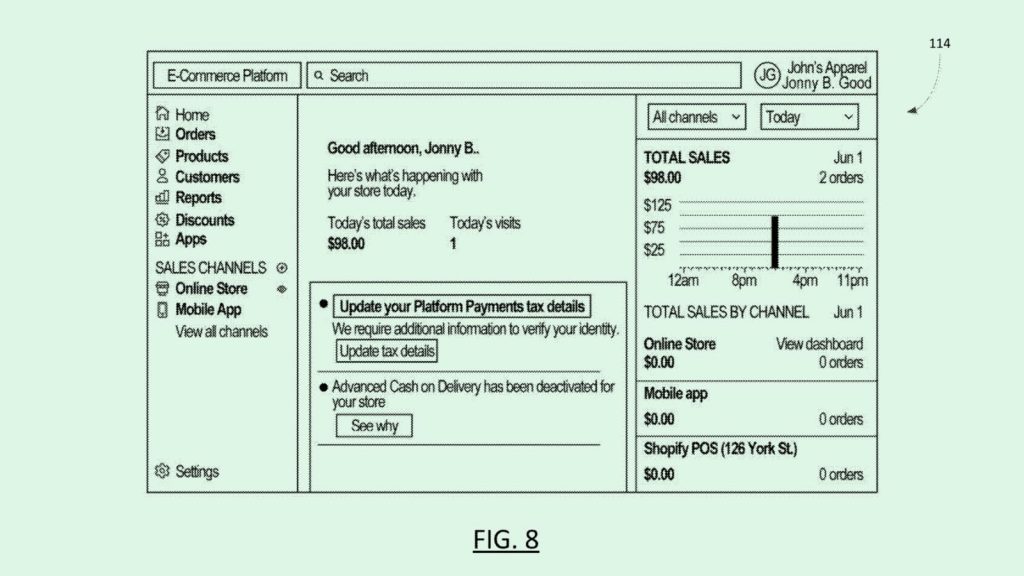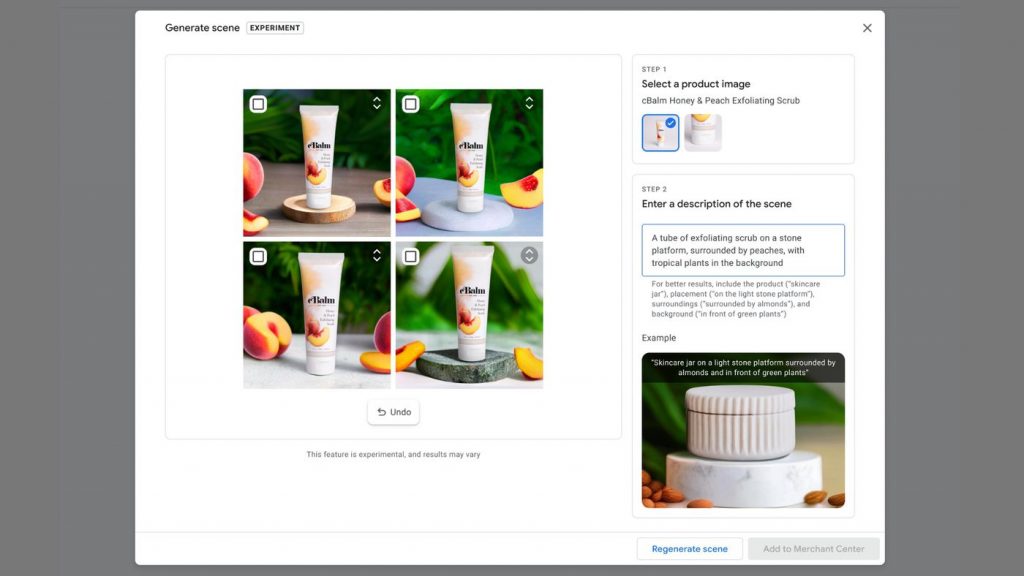Juphy’s Weekly E-Commerce News Express – 27-31 May 2024
Ceyda Duz
This week, the retail world is buzzing with anticipation for the 2024 short holiday season, accompanied by a noticeable shift towards online shopping among European consumers. Major players like Shopify, Walmart, and Google are introducing new updates to their offerings, setting the stage for an interesting season ahead. Prepare to capitalize on the opportunities it brings and stay informed about the latest trends in online shopping and retail.

As we approach the 2024 holiday season, the retail and online shopping landscape faces an unprecedented mix of influential events: the Summer Olympics in Paris and a condensed shopping period. These factors present both challenges and opportunities for retailers and marketers alike. Understanding and preparing for these dynamics is crucial in maximizing success in the upcoming holiday sales season.

Understanding the Landscape
Despite global challenges like the pandemic and inflation, consumer spending has shown resilience. However, the retail landscape has undergone significant shifts, with major retailers dominating growth. This, coupled with the upcoming Summer Olympics and a truncated holiday season, necessitates strategic planning to navigate these uncertainties effectively.
Leveraging the Olympics
The 2024 Summer Olympics in Paris will command global attention, offering a unique opportunity for brands to engage with consumers. Previous Olympic events have seen a drop in spending during the event itself, followed by increased engagement afterward. Brands in the health, wellness, beauty, and fitness sectors can capitalize on the inspiration drawn from top athletes to connect with their audience.

Adapting to a Shortened Season
With only 27 days between Thanksgiving and Christmas, the 2024 holiday season presents logistical challenges. Starting campaigns early and extending store hours during peak shopping days can help compensate for the shortened period. Managing shipping deadlines and inventory, along with streamlining campaign launches, will be essential to maximizing sales during this critical time.

Strategic Recommendations
- Enhance First-Party Data: Utilize enhanced first-party data to understand customers and deliver relevant messaging, particularly crucial amidst significant global events.
- Early and Consistent Engagement: Commence holiday campaigns early, ensuring consistent engagement across multiple channels to maintain brand visibility.
- Leverage Olympic Inspiration: Align messaging with the spirit of the Olympics to resonate with a captivated audience, leveraging the broad reach of Olympic broadcasts.
- Adapt to Consumer Sentiment: Tailor messaging to reflect consumer sentiments during the election period, offering consistency and reliability to build trust.
By understanding the current landscape, leveraging past trends, and strategically planning around the unique events of 2024, retailers and marketers can successfully navigate the holiday season. Early preparation, consistent engagement, and a deep understanding of consumer behavior will be the keys to achieving success in this challenging environment.
European Consumers’ Online Shopping Trends
The latest Consumer Insight Report from AliExpress displays a significant increase in online shopping across Europe, with at least 95.8% of consumers in major markets embracing digital commerce in the first quarter of this year. In the United Kingdom, 93% of consumers turned to online platforms for shopping, while in the Netherlands, the figure grew to 96%.

Insights from the Survey
AliExpress surveyed over 8,500 consumers from France, Germany, Spain, the United Kingdom, and the Netherlands to understand their evolving online shopping habits.
- Among UK consumers, 63% spent an average of €100 to €500 online during the first quarter.
- In the Netherlands, a remarkable 75% of consumers surpassed the €100 spending threshold.
Fashion Reigns Supreme
Fashion emerged as the dominant category in online shopping preferences, especially among younger demographics in the UK. Millennials and Gen Z consumers showcased a preference for staying up-to-date on the latest fashion trends, driving substantial spending in this category.
Time Invested in Online Shopping
The report also mentions the time European consumers allocate to online shopping activities. Impressively, 35% of consumers spent more than five hours per week browsing and purchasing products online, indicating a significant shift toward digital commerce. Additionally, 50% of consumers spent between one to four hours weekly online shopping.

As online shopping continues to shape consumer behavior and preferences, retailers and e-commerce platforms stand to benefit from understanding and adapting to these evolving trends. With fashion emerging as a key driver and consumers investing considerable time and resources into online shopping experiences, there are many opportunities for online businesses, especially for this year.
Shopify’s Patent Application

Shopify has recently applied for a patent on “tuning AI-generated images“, signaling a potential expansion of its AI tools for merchants. This system gathers data from merchants’ online stores, including product images and categories, to train machine learning models on large sets of similar product images. With this technology, merchants can generate and customize product photos for advertising, aligning with their brand identity and marketing strategies.
Walmart’s Influencer-Led Realm
Walmart has unveiled its new shopping platform, Walmart Realm, offering a digital experience featuring influencer-led virtual shops set in immersive worlds. The launch includes three distinct virtual shops created by popular creators, showcasing fashion, beauty, and home products. Each shop embodies a thematic environment: So Jelly, an underwater paradise; Y’allternative, a fusion of gothic and Western styles; and Go Chromatic, a futuristic metallic realm. Alongside the curated product selections, Walmart Realm integrates creators’ social content and offers three engaging mini-games inspired by the featured products.

Google’s Generative AI Tools for Product Images

Google has introduced generative AI tools within Product Studio, empowering merchants to generate product images tailored to their brand’s distinctive style effortlessly. Using this feature, merchants can upload an image reflecting their desired aesthetic, provide a brief prompt outlining the scene, and witness Product Studio quickly generate campaign-ready content. Moreover, Product Studio extends its capabilities to crafting captivating videos from a single photograph. With a simple click, merchants can animate elements of static product images, producing engaging short videos or dynamic product GIFs ideal for social media platforms.
Empower Your Shopify Store with Juphy AI’s Retraining!
AI tools, particularly AI chatbots, learn like humans but with exceptional speed and adaptability. Unlike humans, they swiftly grasp and integrate new information into their operations. Take, for instance, Juphy’s ChatGPT-powered AI Agent for Shopify and its retrain feature. Imagine onboarding a new employee and guiding them through every aspect of the job. Similarly, with Juphy AI, you can effortlessly retrain your AI chatbot in seconds, ensuring it delivers optimal performance with up to 99% accuracy! With Juphy, optimizing your AI Agent’s responses is as simple as editing a conversation and saving the changes.
This streamlined process empowers you to tailor your AI chatbot’s interactions precisely to your preferences, enhancing customer satisfaction and engagement. Seamlessly handling similar queries, Juphy AI becomes the ultimate ally in delivering exceptional customer service on your Shopify store. Welcome the opportunity to elevate your Shopify store into an exclusive online shopping destination by integrating Juphy’s AI Agent.
Don’t wait any longer – try Juphy today: apps.shopify.com/juphy

Key Takeaways
Navigating 2024’s Unique Holiday Season: In 2024, retailers navigate challenges and opportunities with the upcoming Summer Olympics and a condensed shopping period. Brands can engage with the Olympics and increase sales by launching early campaigns and refining logistical strategies.
European Consumers Online Shopping Trends: Online shopping across Europe continues to surge, with over 95.8% of consumers embracing digital commerce in Q1 2024. Fashion remains a dominant category, particularly among younger demographics, signaling opportunities for retailers to capitalize on evolving consumer preferences.
Shopify’s Patent Application: Shopify’s patent application for “tuning AI-generated images” suggests a potential expansion of its AI tools for merchants. This innovative system enables merchants to generate and customize product photos for advertising, aligning with their brand identity and marketing strategies.
Walmart’s Influencer-Led Realm: Walmart introduces Walmart Realm, a digital shopping platform featuring influencer-led virtual shops set in immersive worlds. Each shop offers curated product selections and integrates creators’ social content, enhancing the shopping experience with engaging mini-games inspired by the featured products.
Google’s Generative AI Tools for Product Images: Google unveils generative AI tools within Product Studio, enabling merchants to effortlessly generate product images and videos tailored to their brand’s style. This feature empowers merchants to create campaign-ready content, including animated product GIFs ideal for social media platforms.

